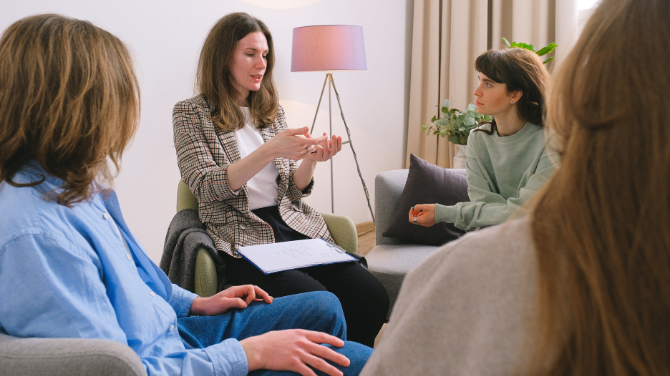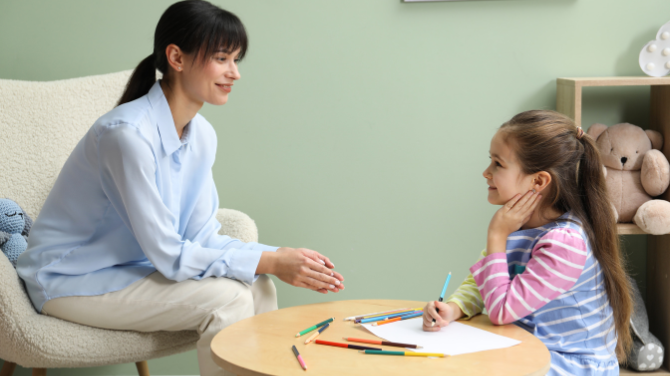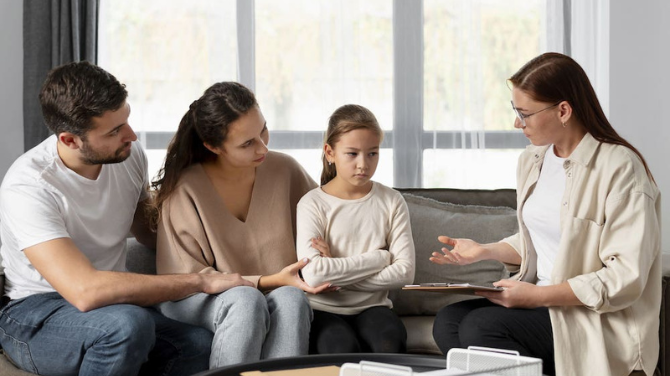How Group Therapy Builds Empathy, Connection, and Healing

Strong 8k brings an ultra-HD IPTV experience to your living room and your pocket.
Group therapy offers a powerful space where individuals connect through shared experiences, providing mutual support and healing. Unlike individual therapy, this collaborative approach leverages group dynamics to deepen empathy, build understanding, and promote growth. In this blog, we explore how group therapy fosters emotional insight and connection through collective healing.
The Role of Shared Experiences
Building Trust and Safety
Trust is essential in group therapy. As participants begin to open up, a sense of safety forms, encouraging honest self-expression without fear of judgment. Facilitators help establish this safe environment by setting ground rules around respect and confidentiality, creating a supportive atmosphere for meaningful conversations.
Normalizing Emotions
Many people enter therapy feeling isolated in their struggles. Group therapy helps normalize emotional responses by revealing shared human experiences. When participants hear others articulate similar fears or challenges, they feel less alone and that validation can be profoundly healing.
Encouraging Openness and Insight
Fostering Mutual Openness
When one person shares openly, others often follow. This openness promotes deeper self-reflection and invites a broader exchange of perspectives. As individuals listen to different stories, they often gain new insights into their own emotions, behaviour patterns, and coping mechanisms.
Gaining New Perspectives
Hearing others describe how they face similar issues whether it's anxiety, grief, or trauma can shift one’s own thinking. Exposure to diverse viewpoints encourages flexibility and fosters emotional intelligence, allowing for more adaptive responses to personal struggles.
Empathy Development in Group Settings
Understanding Diverse Experiences
Group therapy brings together people from varied backgrounds and life stages. This diversity promotes empathy by exposing participants to different ways of processing and overcoming adversity. As they listen, individuals learn to appreciate others’ emotional realities, even when they differ from their own.
Forming Emotional Bonds
These shared stories and struggles form deep emotional connections. Participants not only support one another but begin to relate more closely to others’ feelings. This sense of solidarity can ease loneliness and foster a strong sense of community.
Learning and Growth Through Connection
Sharing Coping Strategies
A key benefit of group therapy is learning new coping tools from peers. Participants often leave sessions equipped with practical techniques, emotional strategies, or perspectives they hadn’t considered before.
Inspiration Through Progress
Seeing others make progress can spark hope. Whether it's someone overcoming social anxiety or making peace with past trauma, their success becomes a beacon, motivating others to stay engaged in their own recovery.
Overcoming Barriers to Sharing
Managing Fear of Judgment
Initial hesitation is common. Many fear judgment or misunderstanding. Facilitators help reduce this fear by maintaining a non-judgmental tone and encouraging mutual respect, allowing participants to build confidence in expressing themselves.
Navigating Vulnerability
Opening up can feel risky. But within a supportive group, vulnerability is met with compassion not criticism. Over time, this acceptance builds emotional resilience and the courage to confront deeper personal issues.
The Facilitator’s Role
Maintaining Structure and Flow
Facilitators are vital in managing group dynamics. They ensure that each voice is heard and that the conversation remains constructive and inclusive, guiding participants through difficult emotions and conflicts when necessary.
Upholding Respect and Confidentiality
A clear set of expectations like honoring confidentiality and treating others with respect creates a space where participants feel secure enough to be vulnerable. This environment allows trust to flourish.
The Transformative Impact of Group Therapy
Group therapy is a deeply human experience that nurtures empathy, understanding, and personal growth. By sharing openly in a supportive setting, individuals can explore their emotions, learn from others, and form lasting connections. Whether you’re navigating anxiety, grief, or relationship challenges, the shared strength of a group can be profoundly healing.
At Tema Therapy, our Group Therapy NJ programs are designed to help individuals foster these powerful emotional connections while addressing a wide range of challenges. For those seeking holistic support through Mental Health NJ services, group therapy offers a meaningful path to deeper healing, self-awareness, and community.
Note: IndiBlogHub features both user-submitted and editorial content. We do not verify third-party contributions. Read our Disclaimer and Privacy Policyfor details.







